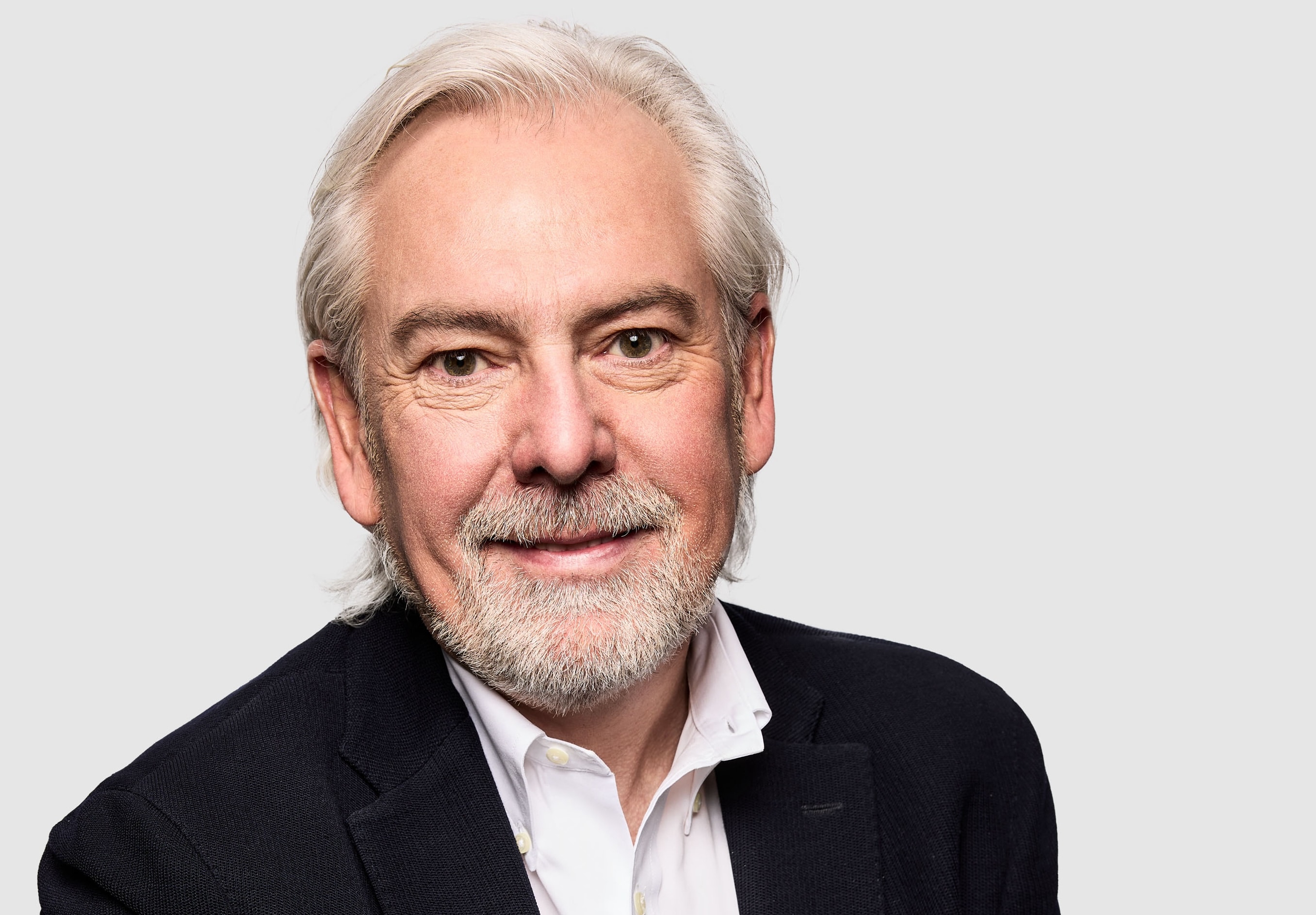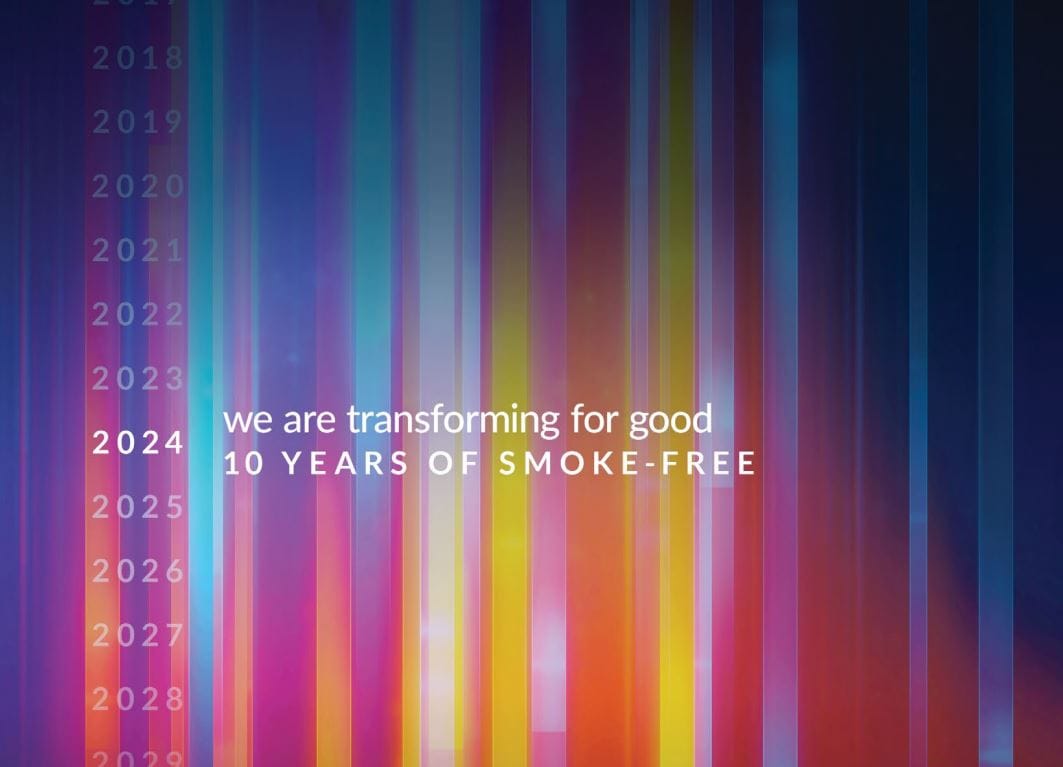This year marked two significant milestones: The 10th anniversary of both IQOS and ZYN. From its inception as a scientifically substantiated concept, IQOS has been an established global category leader, while ZYN has achieved remarkable success across all 50 U.S. states and is expanding internationally.
As I reflect on 2024, our achievements fill me with profound optimism about our business progress. Through the dedicated efforts of our employees, we have not only sustained our momentum but accelerated it, achieving some goals that only a few years ago seemed too ambitious to accomplish.
I’m pleased to report substantial progress in advancing the sustainability of our business, which is inextricably linked to our business transformation. Our drive toward a smoke-free future and our commitment to sustainability are deeply integrated. Both reflect our purpose to create long-term value while addressing our products’ impacts on society and the environment.
Progress on our smoke-free vision continues to gain unprecedented momentum. Our efforts to expand access to smoke-free products, where permitted, have allowed us to reach an estimated 38.6 million adult users, with the products available in 95 markets by year-end. This demonstrates our commitment to transformation and reaffirms the great potential of our smoke-free products to eradicate smoking, should we be able to commercialize smoke-free products in currently restricted markets.
There are a number of reasons to believe that many of the current external barriers are temporary in nature, considering the growing scientific consensus supporting harm reduction approaches, the increasing number of countries recognizing the public health potential of smoke-free products, our demonstrated success in markets where regulatory frameworks are supportive, and a clear pathway to accelerated transformation once current barriers subside.
Our greatest strength lies in our people, whose talent and innovative spirit drive our smoke-free vision. In 2024, we launched the PMI DNA principles, built on three core values: We Care; We are Better Together; and We are Game Changers. These principles, crafted by our employees and for our employees, have become a guiding light for our company.
To catalyze progress and ensure company-wide alignment, we link our sustainability performance to executive compensation. We completed the first Performance Share Units (PSU) cycle of our 2022–24 Sustainability Index, which represents 30 percent of our performance-based long-term equity award. The Index had a total score of 89 percent, including a 76 percent score for product sustainability (“what” we produce).
The purpose of our Business Transformation Metrics (especially those included in the Index) is to measure and incentivize management’s commitment to transformation. Importantly, the number of adult smoke-free product users surpassed the expectations we had set for ourselves in 2022. That said, much like other companies pursuing radical transformations that require significant change, our organization operates within larger systems that can constrain the pace of progress despite our best efforts. While external factors beyond the company’s control have delayed the achievement of certain numeric targets, our employees have proven unwavering in their commitment and have acted to advance our purpose.
We are firmly committed and are taking decisive actions to prevent access by underage people to our products, and we have continued to expand the scope of our youth access prevention programs. We also made significant strides in our environmental initiatives, notably becoming the first company to publish an Environmental Product Declaration in the smoke-free category for IQOS ILUMA i versions, demonstrating our leadership in embedding eco-design principles into our product development.
The overall score of the Index was bolstered by particularly strong performance in operational sustainability (“how” we operate), at 115 percent. We made significant strides in our decarbonization journey, with 22 of our manufacturing facilities achieving carbon neutrality certification (up from 18 in 2023). However, reducing scope-3 emissions continued to be challenging, mainly due to external factors beyond our immediate control. After over a decade of implementation of our Agricultural Labor Practices program, we are proud that child labor in our tobacco supply chain is no longer a systemic issue. We also made strides in promoting a living income for farmers who supply tobacco to us. We also achieved our target of 10 human rights impact assessments ahead of time, conducting two new assessments in Indonesia and Kazakhstan.
While I am proud of our achievements, especially of the broader recognition of tobacco harm reduction as a complementary approach to reducing smoking rates, challenges remain. Some countries continue to pursue policies and introduce regulations that are not informed by facts or science, but rather by ideology. As a consequence, the absurdity of a more harmful product (cigarettes) being legal and less harmful alternatives to smoking being banned still remains in many countries.
Other challenges that remain top of mind include expanding access to our smoke-free products by improving availability, awareness, acceptability, and affordability. We are also seeking to build more sustainable supply chains, maximize end-of-life device take-back, reduce post-consumer waste, while navigating complex and rapidly evolving regulatory environments with agility. Readiness and preparedness to respond requires continued innovation and persistence from us all. It is my firm belief that these challenges should be understood as opportunities—catalysts for positive change and the potential to showcase true leadership.
Our business imperative remains clear: We are committed to driving long-term value creation by doing what’s right for business, society, and the environment. We believe that business excellence and positive societal impact are not just compatible—they are inseparable elements of our success. We continue to make significant strides toward our aspiration to become substantially smoke-free by 2030, supported by the exceptional quality and dedication of our global team.
This integrated report serves as both a testament to our progress and an invitation to engage in dialogue that will shape our future. To our employees, thank you for your unwavering dedication. To our stakeholders, thank you for your continued trust and engagement. Together, we are not just transforming our company, we are leading an industry-wide transformation—helping to create a better, more sustainable future for all.
This letter is an excerpt from PMI’s Integrated Report 2024
This online content about our Integrated Report should be read in conjunction with PMI’s Integrated Report 2024. This report includes metrics that are subject to uncertainties due to inherent limitations in the nature and methods for data collection and measurement. The precision of different collection and measurement techniques may also vary. This report includes data or information obtained from external sources or third parties. Unless otherwise indicated, the data contained herein cover our operations worldwide for the full calendar year 2024 or reflect the status as of December 31, 2024. Where not specified, data comes from PMI financials, nonfinancials, or estimates.
Unless explicitly stated, the data, information, and aspirations in this report do not incorporate PMI’s wellness and healthcare business, Aspeya. Regarding the Swedish Match acquisition, completed late 2022, unless otherwise indicated, this report includes information pertaining to its sustainability performance. Please also refer to "This report at a glance" on page 2 of the PMI’s Integrated Report 2024 for more information. Aspirational targets and goals do not constitute financial projections, and achievement of future results is subject to risks, uncertainties and inaccurate assumptions, as outlined in our forward-looking and cautionary statements on page 206. In PMI’s Integrated Report 2024 and in related communications, the terms “materiality,” “material,” and similar terms are defined in the referenced sustainability standards and are not meant to correspond to the concept of materiality under the U.S. securities laws and/or disclosures required by the U.S. Securities and Exchange Commission.



